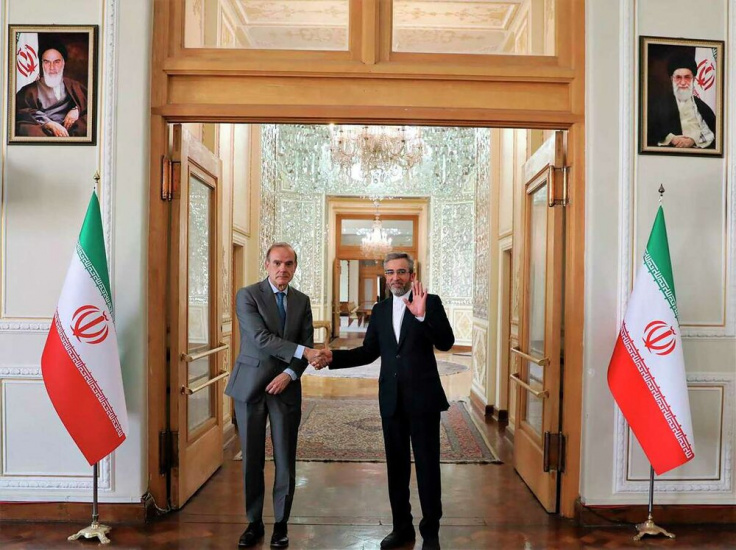Time for diplomats to redouble efforts to resurrect nuclear deal: analysis

“Simultaneous and reciprocal lifting of the IRGC and CENTCOM terrorist designations could reduce tensions and help to resolve the current deadlock” surrounding the Vienna talks to restore the nuclear deal, Seyed Hossein Mousavian suggests.
He says the nuclear agreement — known officially as the Joint Comprehensive Plan of Action (JCPOA) — was the product of 12 years of intensive negotiations, and the most comprehensive non-proliferation deal in history.
However, Mousavian, a former Iranian nuclear negotiator, wrote this article before European Union foreign policy chief Josep Borrell said the ice to resume nuclear talks in Vienna has melted. The comments followed after his deputy Enrique Mora, who acts as the coordinator of the nuclear talks, visited Iran last week for talks with Iranian officials, including chief negotiator Ali Bagheri Kani.
Speaking on the sidelines of the G7 meeting in Germany on Friday, the EU’s chief diplomat said, "The negotiations were blocked and they have been unblocked and that means there is the prospective of reaching a final agreement."
The terrorist designation against the IRGC has brought the Vienna talks to a standstill. Donald Trump designated the IRGC in order to make a revival of the JCPOA difficult.
“Iran’s demand that the U.S. lifts Trump’s designation of Iran’s powerful Islamic Revolutionary Guard Corps as a foreign terrorist organization. In retaliation, Tehran placed the U.S. Central Command — America’s top military entity focused on the Middle East — on its own list of terrorist groups. Iran insists that, until the U.S. designation is removed, the deal cannot be rescued, pointing out the IRGC was not classified as a terrorist group when the original deal was signed. Conversely, Israel, which is not a party to the deal, argues the IRGC should stay on the list.”
He adds, “The fact is that Iran’s Quds force — the elite branch of the revolutionary guard — and CENTCOM have played a central role in the region.”
The former diplomat also says security concerns in the Persian Gulf can be allayed through dialogue between regional countries. “Concerns in the Persian Gulf could be addressed through regional talks,” he suggests.
He adds, “Without cooperation, the chance for resolving regional crises peacefully would be critically undermined.”
The former diplomat says Iran and Saudi Arabia have already held a fifth round of direct talks in Baghdad.
“Iran’s Supreme National Security Council reached important agreements with Saudi Arabia’s intelligence chief,” he says.
The former diplomat says “collective security” is possible only through cooperation between Persian Gulf countries, particularly between Iran and Saudi Arabia, two heavyweight countries in the region.
“Cooperation and peace among the Persian Gulf countries, especially Iran and Saudi Arabia, could prove critical in resolving their proxy battles in the region, including Yemen, Syria, Lebanon, Iraq and Libya. Sustainable peace, stability and security in the Persian Gulf and the Middle East (West Asia) will not be possible without a system of cooperation and collective security.”
Considering all these things into perspective, the former diplomat suggests that it is now the time that diplomats from Iran and other parties to the nuclear deal as well as the U.S. make serious efforts to resurrect the JCPOA.
“Now is the time for diplomats on all sides to redouble their efforts in pursuit of that goal.”
Source: Tehran Times

